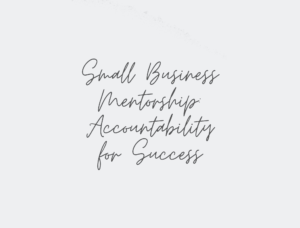Academic skills are more than just tools of the trade for students in today’s fast-paced, information-driven world. A good job, an educated public, and a happy life are all built on these things. It is essential to improve your academic skills whether you are a student handling the challenges of school, a creative teacher encouraging growth, or an academic worker pushing the limits of what is known. Combining ideas from brain science, educational theory, and real-life experience, this long-form guide will help you learn these essential skills. It’s a plan to pass tests and do well in any field where learning is critical.
Understanding Academic Skills – The Foundation of Success
Knowing what academic skills are and why they are essential if you want to do well in school is very important. We’ll talk about why they are so crucial for academic success and why every person who wants to be successful must take care of them.
Defining Academic Skills
Academic skills include a wide range of abilities needed to learn at different levels of schooling. Some are problem-solving, critical thinking, time management, organization, communication, study, and using technology. People don’t naturally have these skills; they learn them over time through school and work practice.
The Value of Academic Skills
Why are academic skills so critical? They help people learn more deeply, understand things better, and build a strong foundation for original thinking. They are essential for putting what you learn into practice in a classroom, a lab, or the job. People in business and academia who improve these skills often stand out as leaders and thinkers.

The Pillars of Academic Excellence
Getting good at a few basic skills is essential for doing well in school. We’ll break down these “pillars” and give tips and tools to improve your academic skills.
Critical Thinking and Problem-Solving
Problem-solving and critical thinking are essential skills for doing well in school. We will discuss different ways to look at information, determine what’s going on in complicated scenarios, and come up with good answers.
Effective Communication
Communication is essential, from making articles make sense to giving powerful speeches. We will talk about how to be clear in writing, speaking, body language, and the subtleties of scholarly conversation.
Time Management and Organization
Because of all the demands of school, organizing and managing your time well is a must. We’ll talk about how to set realistic goals, organize your study or workspace, and decide which jobs are most important.
Research and Information Literacy
It’s an art to sort through all the data out there. We’ll show you how to do good research, evaluate sources, and properly cite information.
IT Competency and Digital Literacy
IT skills are necessary in a world that is becoming increasingly digital. We’ll talk about what “digital literacy” means and how to use different tools for work and school.
Collaboration and Teamwork
No one is successful alone, and working together is a big part of school. We’ll talk about how to work together effectively on everything from group projects to cross-disciplinary study.
Best Practices for Improving Academic Skills
It’s time to improve your academic skills once you know what they are and how they work. This part gives you steps to take right now and best practices to improve your skills.
Schedule Regular “Study Skill” Sessions
Players train regularly to stay sharp, so you should set aside time each week to improve your academic skills. Working on a project or getting better at taking notes could only take an hour a week.
Seek Mentorship and Peer Support
Peers and mentors can give you comments and ideas that are very helpful in improving your skills. Find teachers and make a group of willing friends with whom you can share information and experiences.
Pursue Co-Curricular Activities
You can learn new things by participating in events outside of school, like clubs or community work. These tasks put academic skills to use in the real world and give you a new way to look at their usefulness.
Push Boundaries in Your Field
Check out the edges of what you think is possible in your field. This could mean taking a problematic option, working on an extra project, or studying that breaks new ground.
Reflect on Your Progress
Regular self-evaluations can help you determine what you’re doing well and what you need to work on. Think about your schoolwork and list the skills that helped you the most and the least.

Overcoming Academic Challenges
Problems and learning often go hand in hand. We’ll talk about common issues and give you ways to solve them here.
Combatting Procrastination
Many students have trouble with putting things off. We’ll talk about where procrastination comes from and give you tried-and-true ways to stop it, like the “Pomodoro Technique” and “Eisenhower Matrixes.”
Handling Information Overload
Students today get a lot of knowledge all the time. We’ll show you how to organize and prioritize the flow of information so that you learn not just a lot but good things.
Stress Management
It can be stressful to be in school. When you’re stressed about things like tests or tasks, we’ll show you how to deal with them healthily, from yoga to making time for fun and rest.

Future-Proofing Your Academic Skills
Lastly, we’ll talk about how to “future-proof” your academic skills to remain helpful in a world where jobs and schools are changing quickly.
Stay Informed on Emerging Trends
Take the initiative to keep up with new academic trends. Read literary magazines, attend workshops, and join online groups and sites where people talk about your field’s future.
Foster a Growth Mindset
To deal with change, you need to have a growth attitude. We’ll talk about the basic ideas behind this thinking and how it can help you see problems as chances to grow.
Flexibility and Adaptability
Flexibility and the ability to change will help you in school and life. We’ll discuss ways to develop this attitude, such as studying subjects from different fields together and doing jobs in other areas.
Conclusion
Building up your academic skills today will help you reach your goals tomorrow. This complete guide has given me the structure I need to improve these skills. Using the tips and ideas in these pages, you’re preparing for academic success and setting yourself up for a lifetime of satisfying learning and success. When you master your skills, you control yourself, which is true in school and real life.





